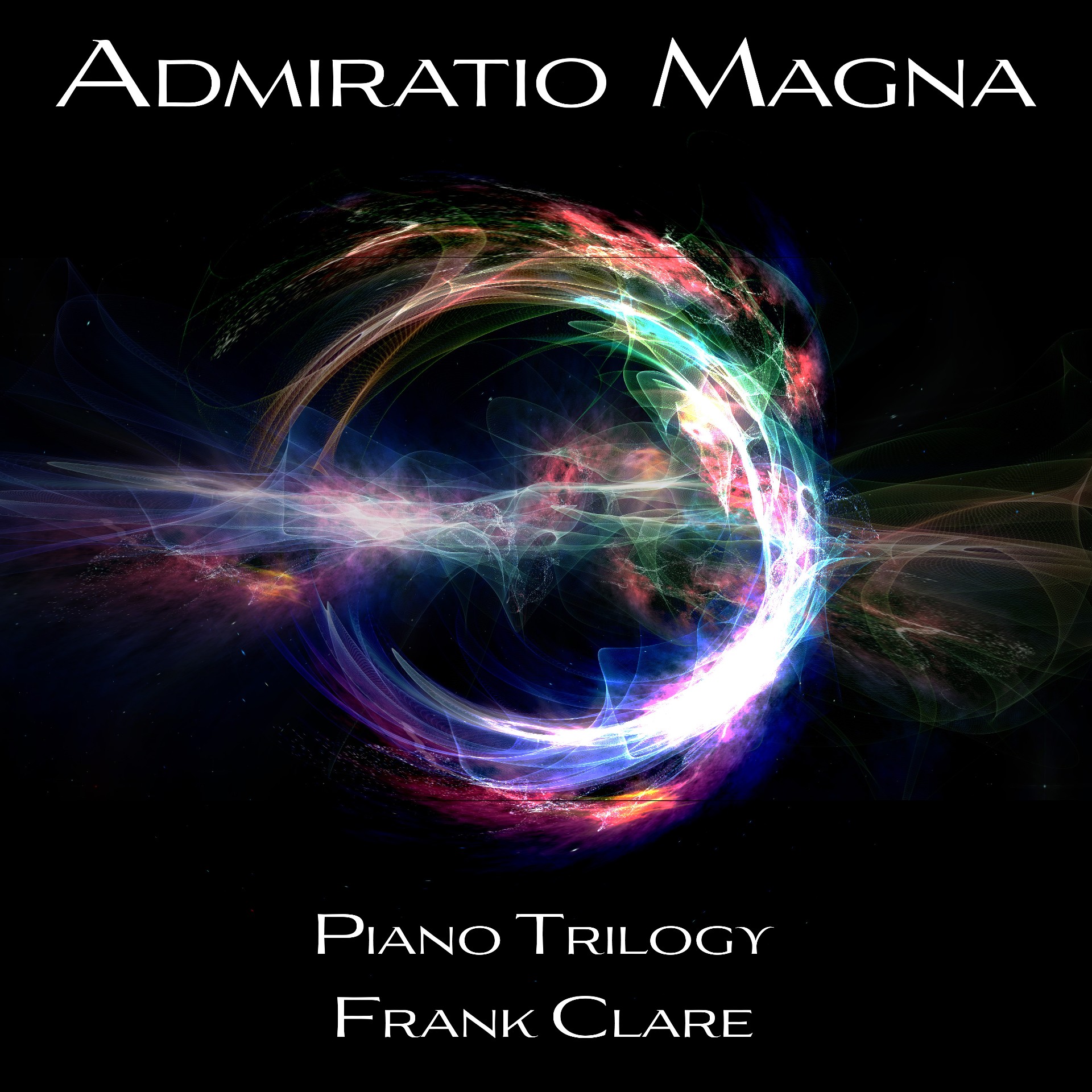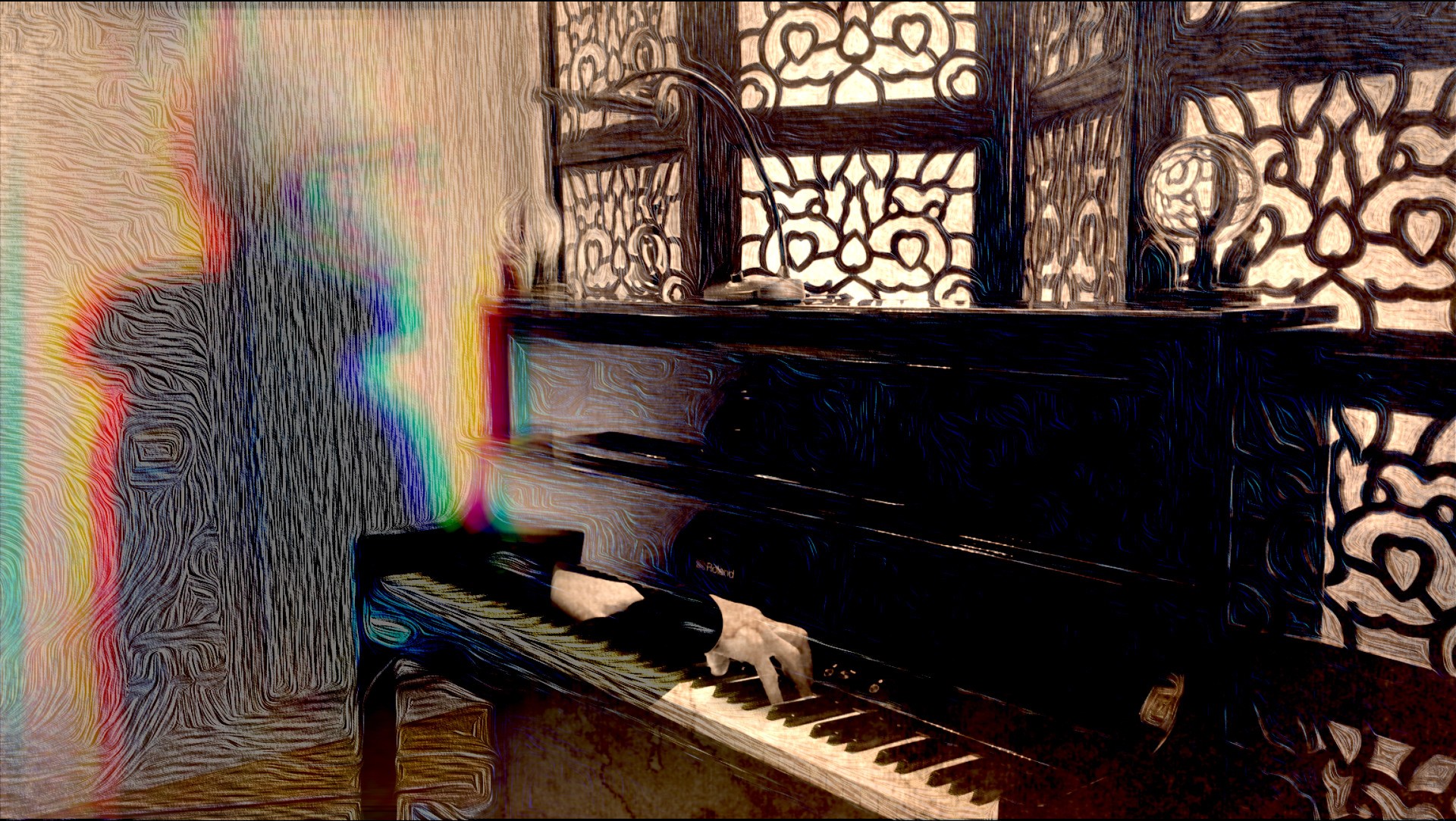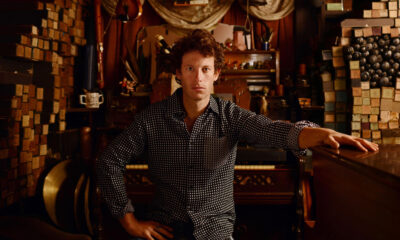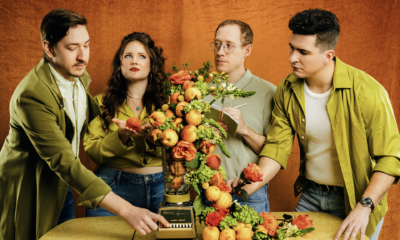Classical
Neoclassical Composer Frank Clare Discusses His Debut Album ‘Admiratio Magna’
Frank Clare speaks with V13 about his creative process, why he makes music, and the ‘room’ inherent in his debut album, ‘Admiratio Magna.’
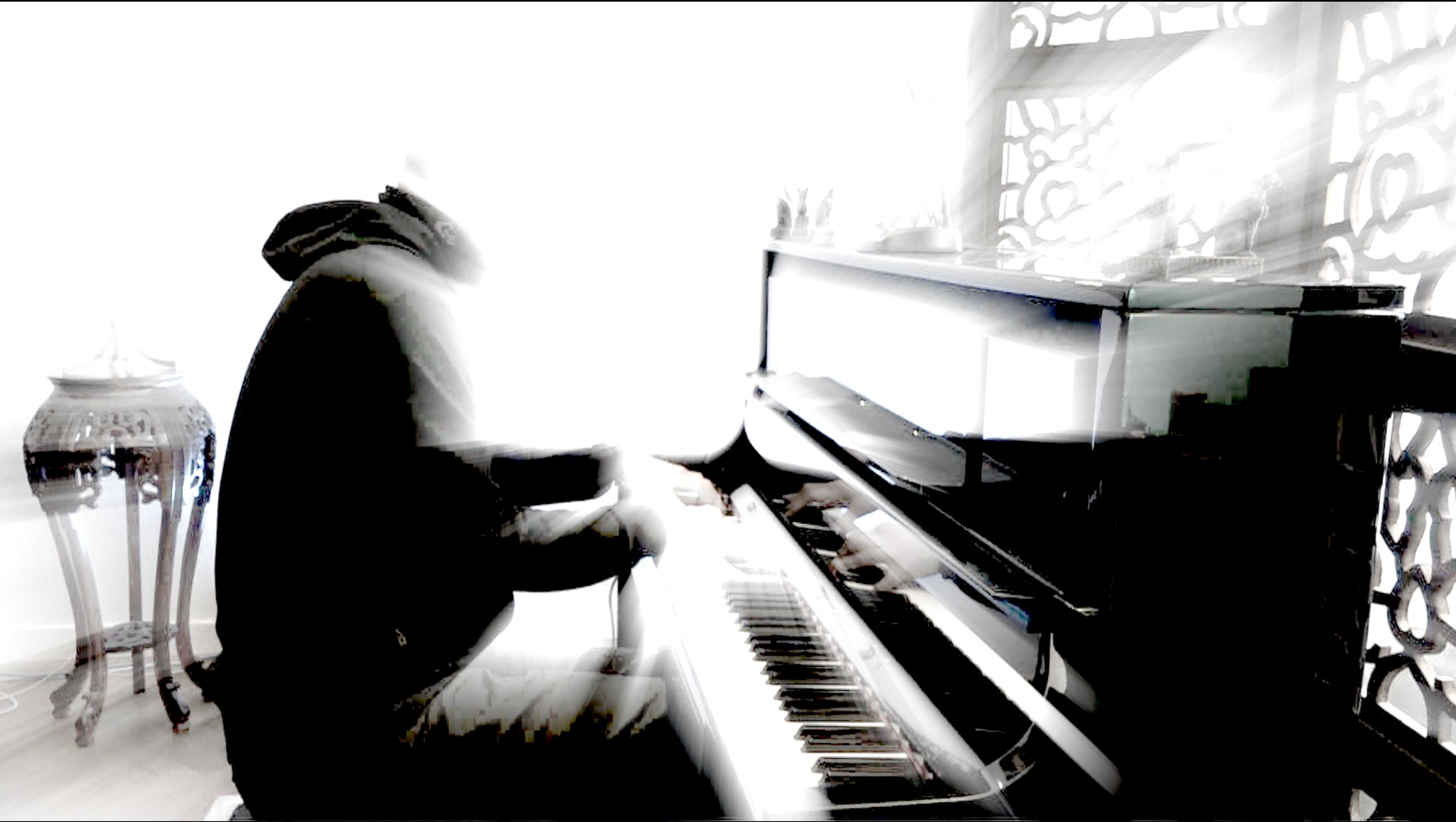
Neoclassical pianist and composer Frank Clare delivers a truly immersive, powerful experience with his recently released debut album, Admiratio Magna.
Clare explains, “‘Admiratio Magna’ is Latin for The Big Surprise. What blows me away is that anything exists at all. Matter. You, me. Washing machines. The Grand Canyon, the Milky Way. Chocolate croissants. Anything. Everything. The Big Surprise. From nothing to everything and back again. ‘Admiratio Magna.’”
Inspired by Clare’s appreciation for 19th-century classical music, as well as his love of philosophy, science, and mindfulness, Admiratio Magna explores themes like the inevitable cycle of creation and the power in stillness, all while displaying true curiosity of spirit. The depth of originality and uniqueness of Frank Clare’s compositions can be pinned down to one life decision.
“I started piano at a late age, 15, and was never good at playing other people’s music. But I loved music and wanted to play, so I started composing,” says Clare.
V13 spoke with Frank Clare to find out more about his creative process, why he makes music, and the ‘room’ inherent in Admiratio Magna.
First, a simple yet revealing question: why do you make music?
Frank Clare: “Listening to music has brought me to places I never knew existed. Inside, out. Feelings, emotions, even sensations. I try to do that, bring the listener somewhere, reveal places, imaginary, real. I also like telling stories and playing characters. And, if a picture is worth a thousand words, music is worth a thousand pictures, 3-D, 4-D, 5-D.”
What inspired your new album, Admiratio Magna?
“To me, the fact that anything exists is surprising. Perfection would be absolute nothingness. But we came from something, which came from something, or nothing, or whatever, we have no idea, and we’re headed towards something we also have no idea about. In the meantime, we live our lives, thinking this is everything. We’re part of something immense, mysterious, profound, and we don’t know our place. But we can have fun. We’re given our lives, which are just as immense, important, and profound as the immensity we’re minuscule parts of.”
Walk us through your mindset as you entered the studio to record the album.
“I’d spent years composing ‘Admiratio Magna.’ I wanted to make sure that this thing I’d constructed, this collection of piano notes, allowed space for the listener to be in. I wanted to make sure it was gracious and hospitable. I wanted to be a good host.”
What is it precisely in the music that makes you a ‘neoclassical’ composer?
“That’s a good question, and I’m going to give a prosaic answer. I didn’t consider myself a ‘neoclassical’ composer. I’d never even heard of that. When I was researching music distribution sites, I saw that I had to categorize my music. They all had a choice, ‘neoclassical.’ I thought, ‘Ok, this music sounds sort of classical, and I’m alive now. That must make me a “neoclassical” composer.’ I always thought of ‘Admiratio Magna’ as ‘classical-ish.’ But ‘classical-ish’ was not offered as a category.”
What is your favourite musical composition? What makes it so good?
“I have many favorite musical compositions in many different genres. Let’s go with themes similar to those in ‘Admiratio Magna,’ a sense of space, and travel between worlds. I love ‘Neptune the Mystic’ from ‘The Planets,’ by Gustav Holst. It takes me out there, drifting, towards the end of our solar system, gently, inexorably. It creates a feeling of quiet awe. The use of voices at the end, repeating two notes, over and over, softer and softer is haunting. And then there are the voices of ‘Lux Aeterna’ by Gyögy Ligeti which take this feeling to an entirely different level. Those voices move beyond our solar system, beyond our galaxy, to exotic dimensions, dimensions of light, space, flux, and energy. ‘Lux Aeterna’ creates an absolute sense of awe and mystery, beauty beyond comprehension.”
Can you explain how you might compose a new piece? What is your creative process like?
“It starts with improvisation. I sit at the piano and play. I might come up with a little left hand or some melody on the right. If I think it’s worth saving, I’ll record it. It’s like a seedling. I’ll improvise off the seedling. Maybe something grows. Maybe not. Maybe I get a whole piece out of it. It can take a couple of weeks or a couple of decades. Parts of ‘Admiratio Magna’ go back 35 years. They existed as ideas, incomplete pieces. Part of it was a finished piece that I reworked. I began specifically on ‘Admiratio Magna’ at the end of 2016 when I rediscovered some old pieces. Then it started moving. Old elements, music without homes, found a home together. The parts got along, grew. The first version was 11 minutes. My final version is over an hour. I had become obsessed with it.”
You create breathing space in your compositions, which is quite enjoyable. Is this space a reflection of your personality or a deliberate stylistic technique?
“It’s a stylistic technique. I didn’t want all of this music to impose itself. I wanted sections of it to make space for a listener to feel at ease in, to dream in. Even to fit their own music into, their own parts, their own solos. Also, a model for sections of the music was the structure of space. Planets, solar systems, and galaxies are like notes, rhythmic patterns, melodies. And there’s an incredible amount of distance between those notes, rhythmic patterns, melodies. After all, it’s called ‘space.’ Then, I focused on one of those notes, one of those planets, our home, our life.”
In your opinion, Is the symphony orchestra still relevant, or is it just a museum?
“The symphony orchestra is completely relevant. Look at the textures, the layers, the subtleties, the power it can create.”
Should a modern composer be judged against only the very best works of the past?
“Let’s let modern composers feel free and allow them the space to find themselves in this time, their time, decades, and centuries after some of the most amazing music was composed. Amazing music is being composed and will continue to be composed. But, on the other hand, I have to admit, modern composers do have some pretty big shoes to fill.”
Which artists are you listening to at the moment?
“I’m looking at my playlists. I see Supertramp, The Electric Light Orchestra, John Lee Hooker, Muddy Waters, Thelonious Monk, John Coltrane, The Modern Jazz Quartet, Freddy Hubbard, Arvo Pärt, lots of Rachmaninoff, some Egyptian Coptic music, Kool and the Gang, Mose Allison, Ravi Shankar, Medieval music, Madredeus, African Head Charge, Asleep At The Wheel, Holst, and Ligeti.”
-

 Music1 week ago
Music1 week agoTake That (w/ Olly Murs) Kick Off Four-Night Leeds Stint with Hit-Laden Spectacular [Photos]
-

 Alternative/Rock1 day ago
Alternative/Rock1 day agoThe V13 Fix #011 w/ Microwave, Full Of Hell, Cold Years and more
-

 Alternative/Rock1 week ago
Alternative/Rock1 week agoThe V13 Fix #010 w/ High on Fire, NOFX, My Dying Bride and more
-

 Features1 week ago
Features1 week agoTour Diary: Gen & The Degenerates Party Their Way Across America
-

 Culture1 week ago
Culture1 week agoDan Carter & George Miller Chat Foodinati Live, Heavy Metal Charities and Pre-Gig Meals
-

 Music1 week ago
Music1 week agoReclusive Producer Stumbleine Premieres Beat-Driven New Single “Cinderhaze”
-

 Indie1 day ago
Indie1 day agoDeadset Premiere Music Video for Addiction-Inspired “Heavy Eyes” Single
-

 Alternative/Rock2 weeks ago
Alternative/Rock2 weeks agoThree Lefts and a Right Premiere Their Guitar-Driven Single “Lovulator”

